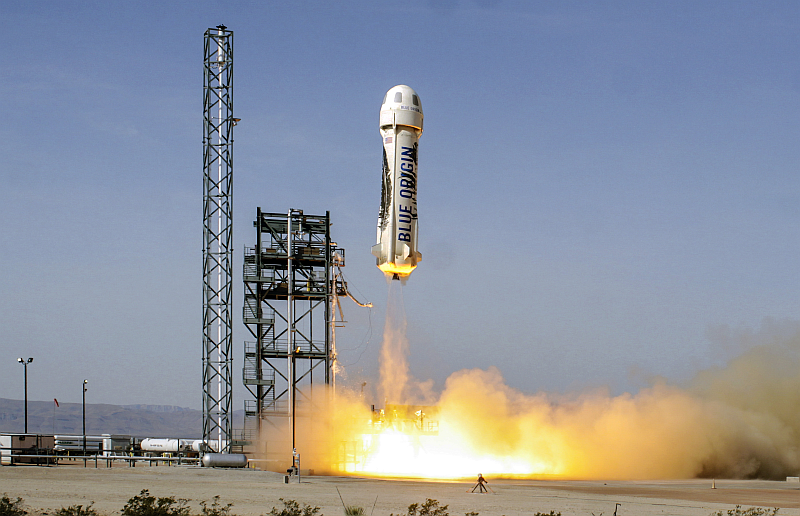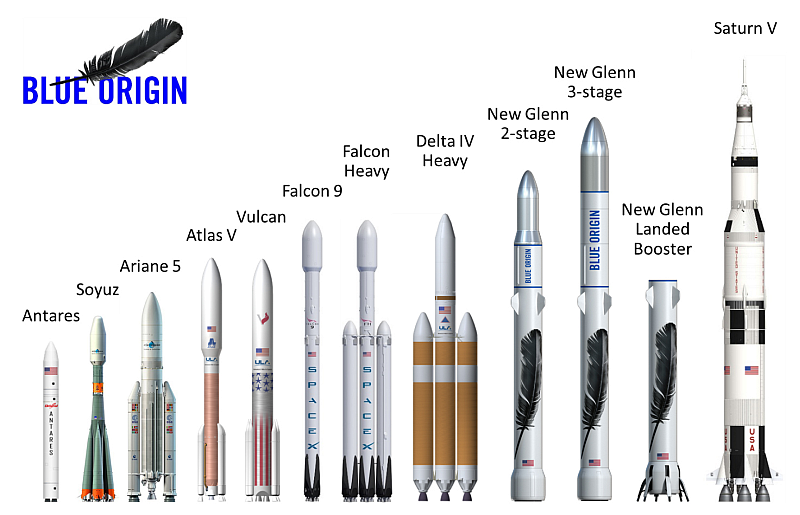For Elon Musk, it's always been about Mars. Musk, and his company
SpaceX
, haven't always been explicit about how exactly they'll get to Mars. But SpaceX's fourteen years of effort in rocketry have been aimed at getting people into space cheaper, and getting people to Mars.
Musk has revealed hints along the way. One of the boldest was his statement at Code Conference 2016. At that conference he said, "I think, if things go according to plan, we should be able to launch people probably in 2024, with arrival in 2025."
He went on to explain it this way: "The basic game plan is we're going to send a mission to Mars with every Mars opportunity from 2018 onwards. They occur approximately every 26 months. We're establishing cargo flights to Mars that people can count on for cargo."
Those comments certainly removed any lingering doubt that Mars is the goal.
But a recent Tweet from Musk has us wondering if Mars will just be a stepping stone to more distant destinations in our Solar System. On Sept. 16th, Musk tweeted:
Turns out MCT can go well beyond Mars, so will need a new name…
And the new name is Interplanetary Transport System (ITS).
So, is SpaceX developing plans to go beyond Mars? Is the plan to establish cargo flights to Mars still central to the whole endeavour? Does the name change from Mars Cargo Transporter (MCT) to Interplanetary Transport System (ITS) signal a change in focus? These questions may be answered soon, on September 27th, when Musk will speak at the
International Astronautical Congress
(IAC), in Guadalajara, Mexico.
Musk hinted back in January that he would be revealing some major details of the MCT at the IAC later this month. In January, he said at the StartmeupHK Festival in Hong Kong that "I'm hoping to describe that architecture later this year at IAC ... and I think that will be quite exciting."
[embed]
So, lots of hints. And these hints bring questions. Is SpaceX developing a super heavy rocket of some type? A BFR? If the
Mars Colonial Transport
system can go much further than Mars, maybe to the moons of the gas giants, won't that require a much larger rocket than the Falcon Heavy?
In the past, SpaceX has conceptualized about larger rockets and the engines that would power them. At the 2010 American Institute of Aeronautics and Astronautics (AIAA) Joint Propulsion Conference, SpaceX presented some of these
conceptual designs
. They featured a super-heavy lift vehicle larger than the Falcon Heavy, dubbed the Falcon X. Beyond that, and in increasingly powerful designs, were the Falcon X Heavy, and the Falcon XX Heavy.
These were only concepts, but it's six years later now. Surely, any further thinking around a super-heavy lift vehicle would have started there. And if the MCT can now go well beyond Mars, as Musk said in his Tweet, there must be a more powerful rocket. Mustn't there?
So with
one tweet
, Musk has sucked the air out of the room, and got everybody speculating. But Musk isn't the only one with eyes on building a greater human presence in space. He has a competitor: Jeff Bezos, former Amazon CEO, and his company
Blue Origin
.
[caption id="attachment_130946" align="alignnone" width="800"]
The New Shepard reusable rocket is Blue Origin's flagship. Image: Blue Origin[/caption]
The original space race pitted the USA against the USSR in a battle for scientific supremacy and prestige. The USA won that race, and they're still reaping the benefits of that technological victory. But a new race might be brewing between Musk and Bezos, between SpaceX and Blue Origin.
The two companies haven't been directly competing. They've both been working on reusable rockets, but Blue Origin has concerned itself with sub-orbital rocketry designed to take people into space for a few minutes. Space tourism, if you will. SpaceX's focus has always been on orbital capability, and more.
But not to be outdone by SpaceX, Blue Origin has recently announced the
New Glenn
orbital launch vehicle, to be powered by seven of their new, powerful, BE-4 engines.
[caption id="attachment_130948" align="alignnone" width="800"]
In rocketry, size definitely matters. Image: Blue Origin[/caption]
There's definitely some one-upmanship going on between Musk and Bezos. So far, it's mostly been civil, with each acknowledging each other's achievements and milestones in rocketry. But they're also both quick to point out why they're better than the other.
Bezos, with the announcement of the New Glenn orbital launch vehicle, and the BE-4 engines that will power it, took every opportunity to mention the fact that his company spends zero tax dollars, while SpaceX benefits from financial arrangements with NASA. Musk, on the other hand, likes to point out the fact that Blue Origin has never delivered anything into orbit, while SpaceX has delivered numerous payloads into orbit successfully.
But for now, anyway, the focus is on SpaceX, and what Musk will reveal at the upcoming IAC Congress. If he reveals a solid plan for recurring cargo missions to Mars, the excitement will be palpable. And if he reveals plans to go further than Mars, with much larger rockets, we may never catch our breaths.
 Universe Today
Universe Today


